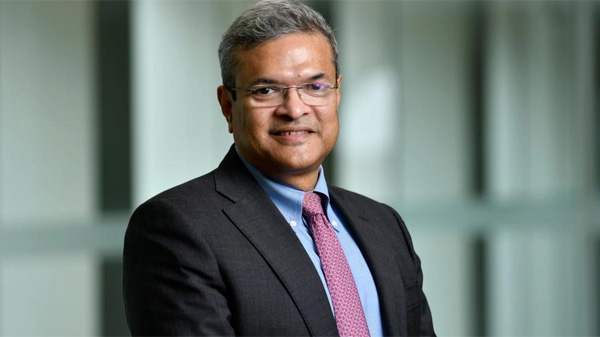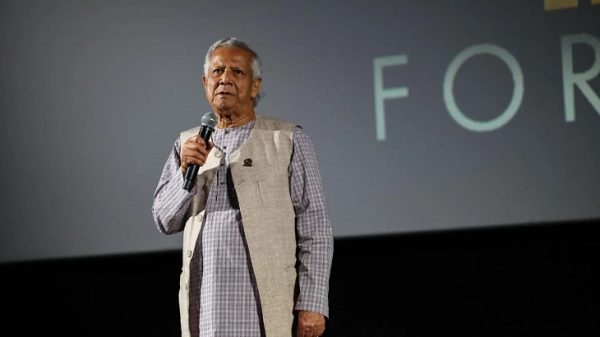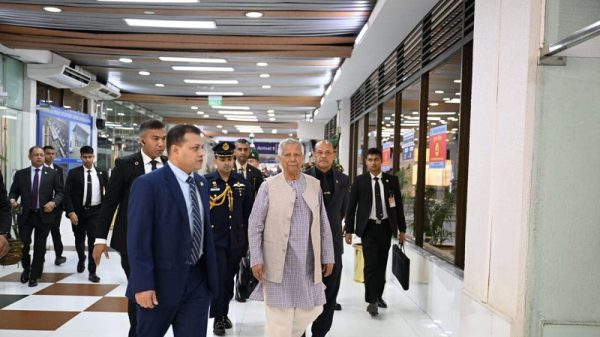Keen to work together with Bangladesh on useful, impactful projects: ADB Vice President Bhargav Dasgupta

- Update Time : Friday, 3 May, 2024, 05:12 pm
- 94 Time View

Online Desk: The Asian Development Bank (ADB) is keen to work together with Bangladesh and other partners on climate front, extending finance to important projects which are useful and impactful.
“We want to finance very impactful, very useful and very important projects with other private sector investors,” ADB Vice-President (Market Solutions) Bhargav Dasgupta told UNB while responding to a question during an interaction on Friday.
Dasgupta, who assumed the position on December 4 last year, said in Bangladesh what they understand is that there is a lot of interest in diversifying the energy sources.
“We are happy to see how we can partner with the government of Bangladesh and how we can work together,” he said.
ADB’s private sector operations are designed to empower businesses, unlock investments, and support the advancement of key development priorities in Asia and the Pacific.
ADB collaborates with a diverse range of stakeholders to address critical development challenges such as climate change, food security, and gender equality by providing innovative solutions to our clients.
Dasgupta, who is responsible for management of the operations of ADB’s Private Sector Operations Department and Office of Markets Development and Public–Private Partnerships, said ADB has been one of the most “respected and trusted” partners for the governments in Asia’s developing countries.
“We are trying to continue the good work we do always,” he said.
The ADB vice president said they have been playing a fair role in the private sector, but they need to increase and scale up that role.
In 2021, ADB announced its ambition to increase its cumulative climate financing to $100 billion between 2019 and 2030, and to allocate $34 billion of this amount for cumulative adaptation and resilience investments, and $66 billion for cumulative mitigation financing.
ADB also aspires to reach $12 billion in cumulative climate finance for private sector operations by 2030, and to crowd in an additional $18–$30 billion to support the development of more commercially viable and climate-friendly businesses.
In 2022, ADB committed climate financing from own resources reached $6.7 billion, of which $2.7 billion is on adaptation and resilience and $4.0 billion is on mitigation.
The ADB official said one of the numbers that they have studied that Asia needs $1.7 trillion to achieve net zero objective.
Talking about engagement in Bangladesh with the private sector, he referred that the ADB last month signed a $121.55 million financing package with Dynamic Sun Energy Private Limited to build and operate a 100-megawatt (MW) grid-connected solar photovoltaic power plant in Pabna, Bangladesh.
The plant is the country’s first private sector utility-scale solar facility to secure support from global financiers.
ADB arranged, structured, and syndicated the debt package as the sole mandated lead arranger and bookrunner.
The financing package comprises a $46.75 million loan from ADB, a syndicated B-loan of $28.05 million from ILX Fund I, an Amsterdam-based emerging market private credit fund focused on supporting the Sustainable Development Goals with ADB as lender of record, and a syndicated parallel loan of $46.75 million from the Japan International Cooperation Agency.
“As Asia’s climate bank, ADB welcomes the opportunity to support renewable energy in Bangladesh, where obtaining long-term financing for such projects is a challenge,” said ADB Private Sector Operations Department Director General Suzanne Gaboury.
“This partnership exemplifies our lead role in mobilising financing for clean energy facilities and stimulating further investment in sectors where it’s needed the most.”
The solar power plant will generate 193.5 gigawatt-hours of electricity annually and avoid 93,654 tons of carbon dioxide emissions annually.










